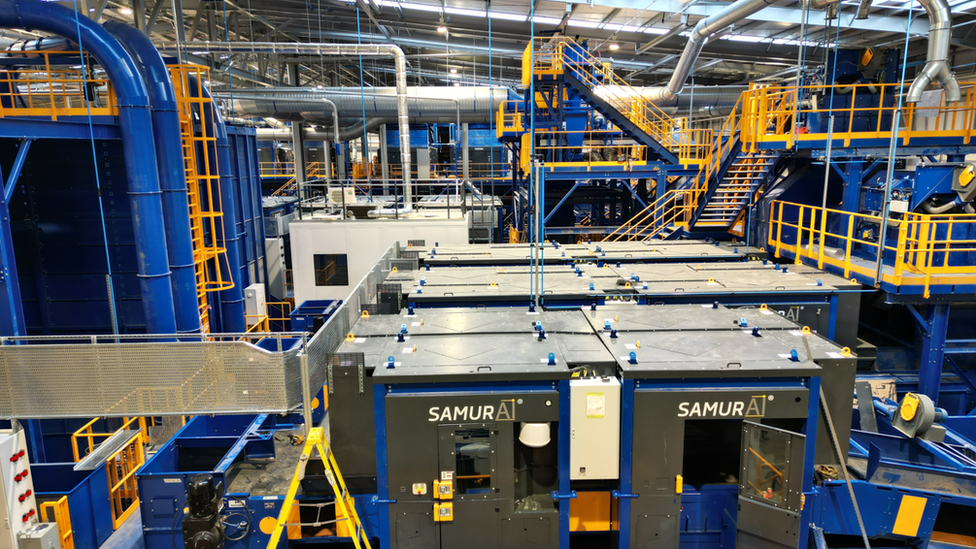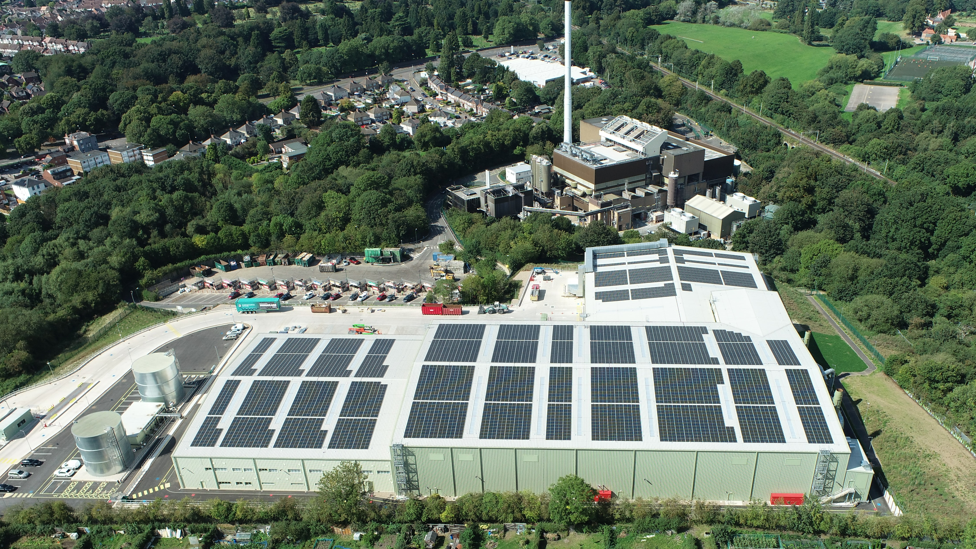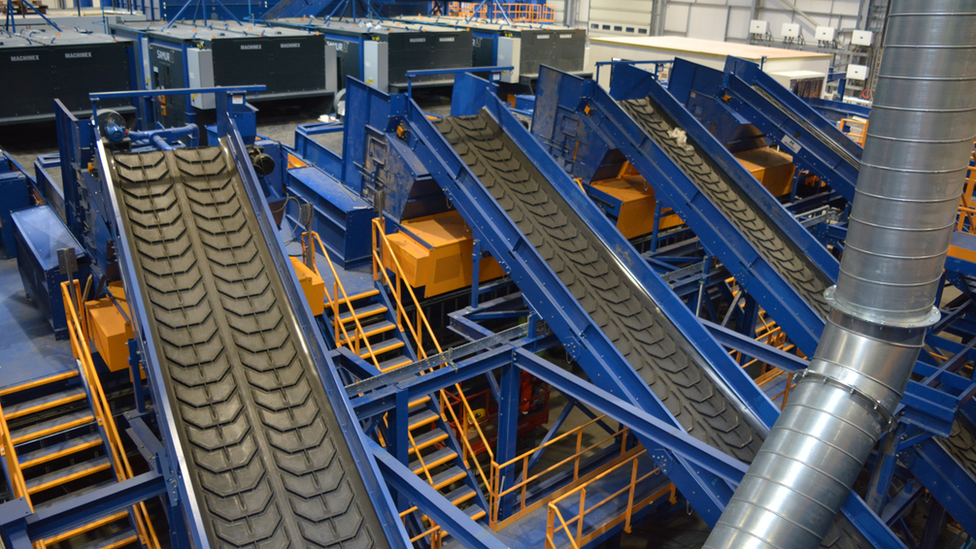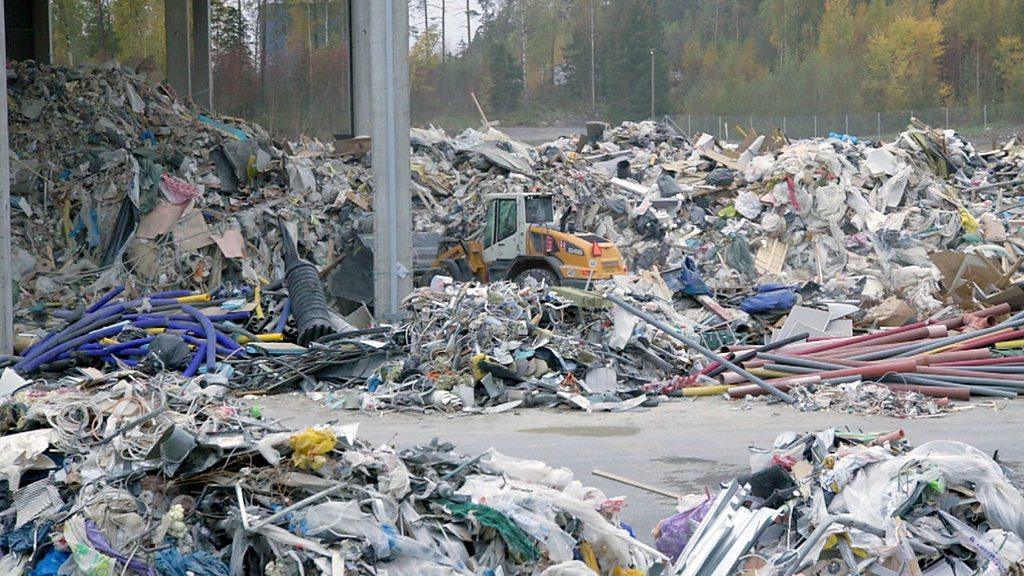AI-assisted recycling centre set to launch in Coventry
- Published

The facility is a joint effort between eight councils in the West Midlands
A new multimillion-pound recycling facility in Coventry is to use robots and AI technology to sort rubbish.
Sherbourne Recycling, based at Whitley Depot, is thought to be the first of its kind in the UK.
It was founded by eight West Midlands councils and will process the rubbish of 1.5m people across the region.
The plant was "a huge investment but a great return for all councils for the next 25 years", Carolyn Watson-Merret from Rugby Borough Council said.
The facility is at the final stages of going fully live to turn residential mixed recycling into high-quality materials to be returned to the UK market, rather than being sent abroad.

Councillor Carolyn Watson-Merret said the facility was "very impressive"
The site's business manager Layla Shannon said it would process 175,000 tonnes of rubbish a year.
The waste would go through two cylinders that take out oversized materials and glass before a process to separate the key components, she said.
"We separate material by metals, glass, plastics and fibres and then we break that down further into different grades of material," she explained.
The robotic units use high suction to target the material during the quality control process, with the robots' arms able to perform "70 picks a minute", Ms Shannon said.
She added: "They're talking back to the optics that are working a stage before them, they know what they're looking for, the AI is bringing the whole system together and they're targeting those key items for us that we don't want there - last little bits of film or tissues... we pull them off and then we've got exactly what we're looking for at the end."

The technology means the range of what can be recycled is wider
Waste that cannot be recycled will go into other bins, but the new technology means the range of what is suitable is wider.
"By using the sorting and rapid response technology that we've got, we can change and we can move with changes in composition and consumer habits," Ms Shannon said.
Ms Watson-Merret, councillor for operations and traded waste at the council, said the handling of volume and tonnage coming into the site was state-of-the-art, with solar panels radiating back to power the plant.
The facility was "very impressive" after several years of hard work between the partner authorities to get it operational, she said.

- Published17 November 2021
